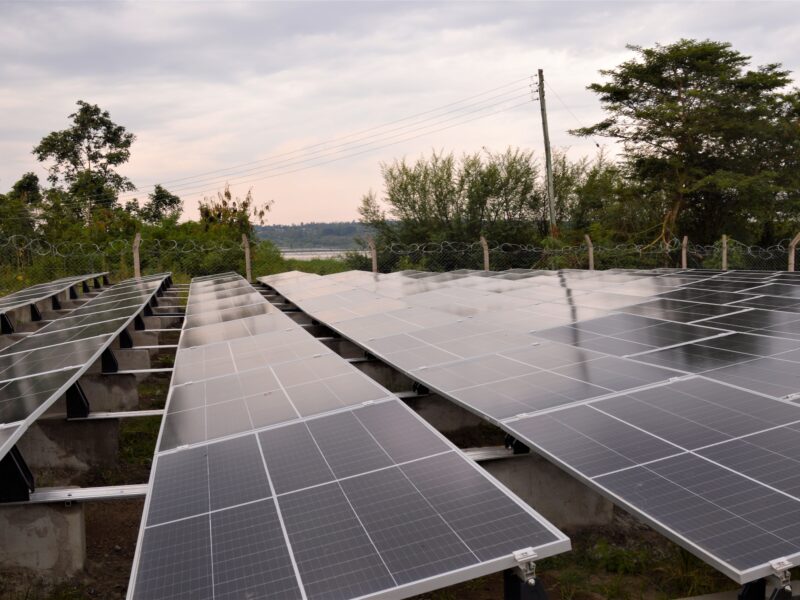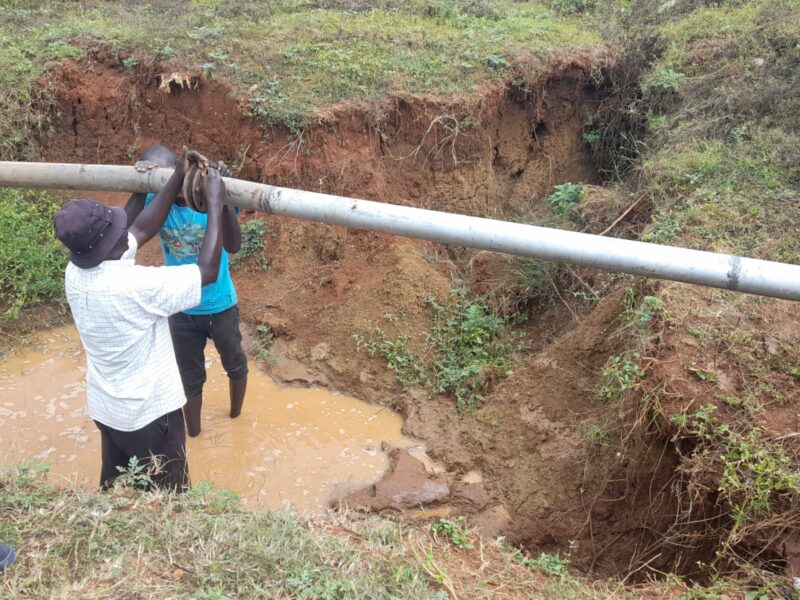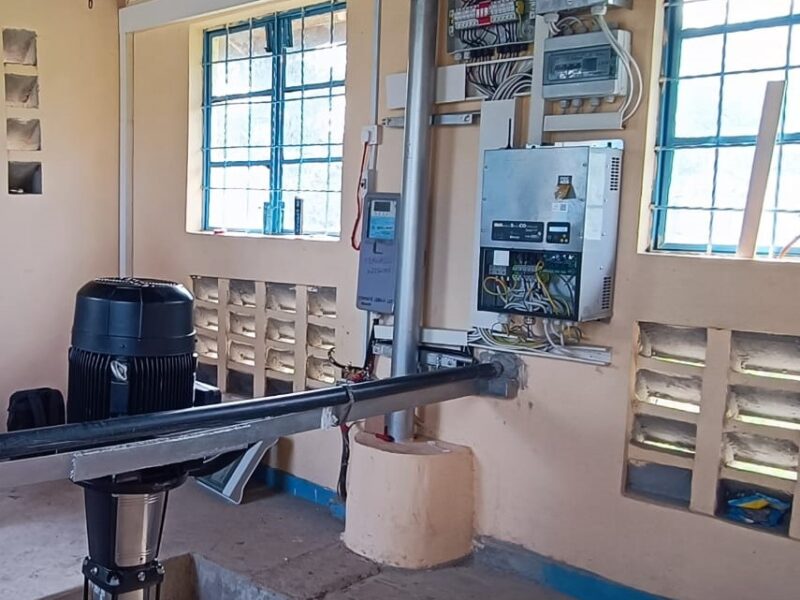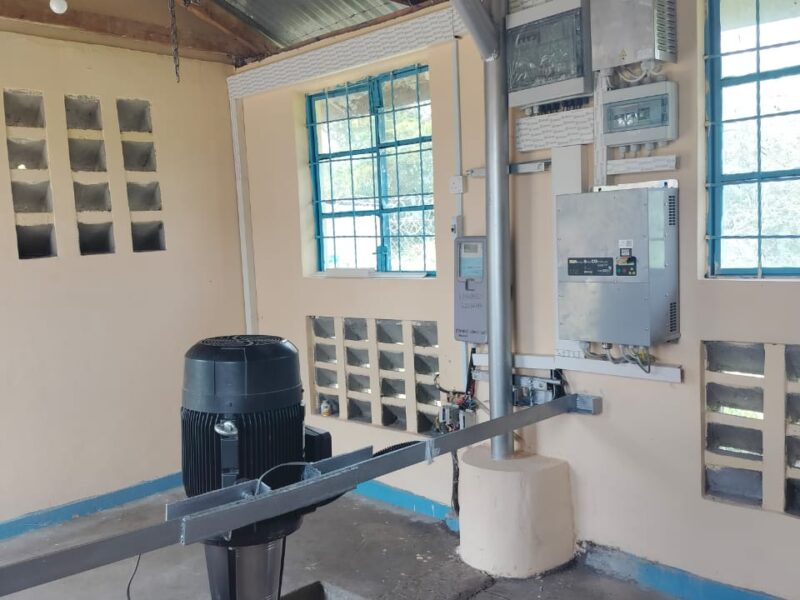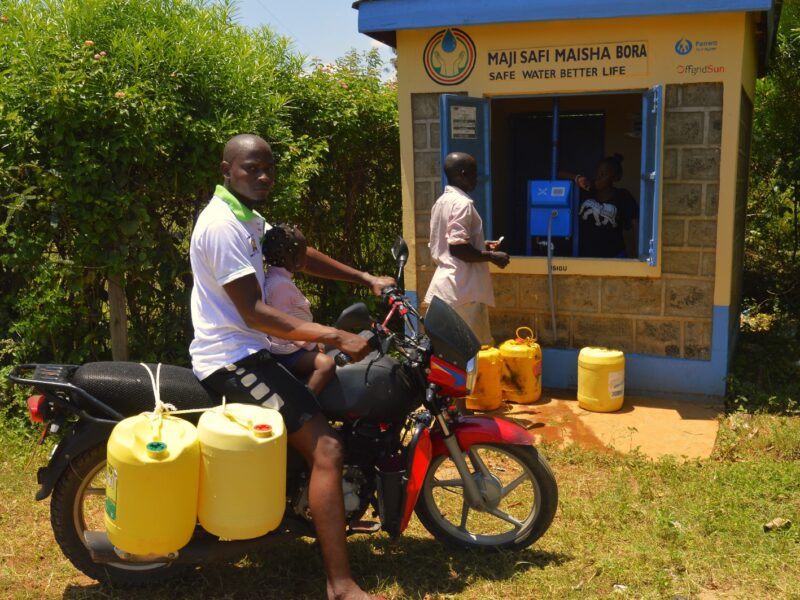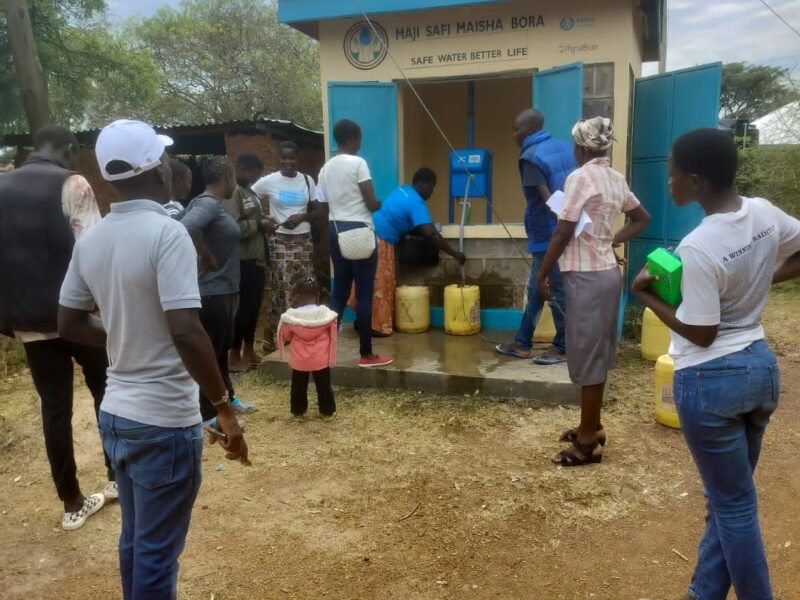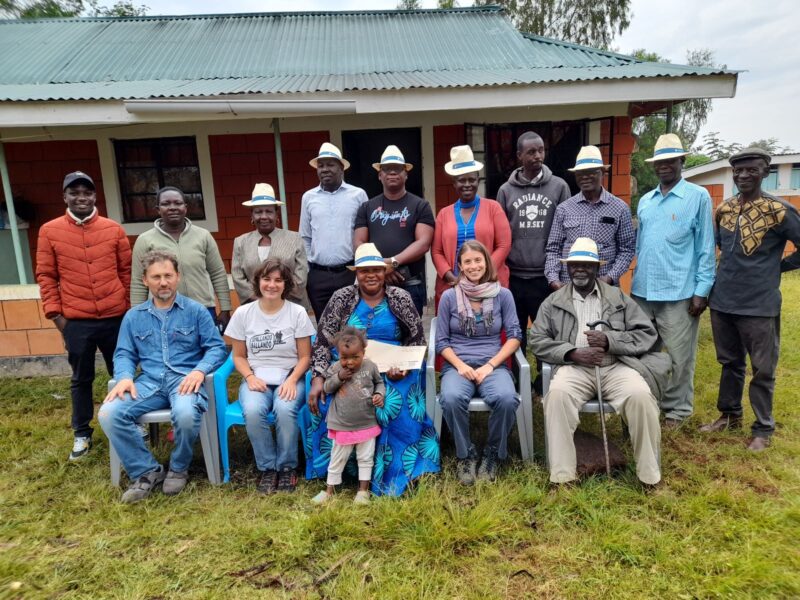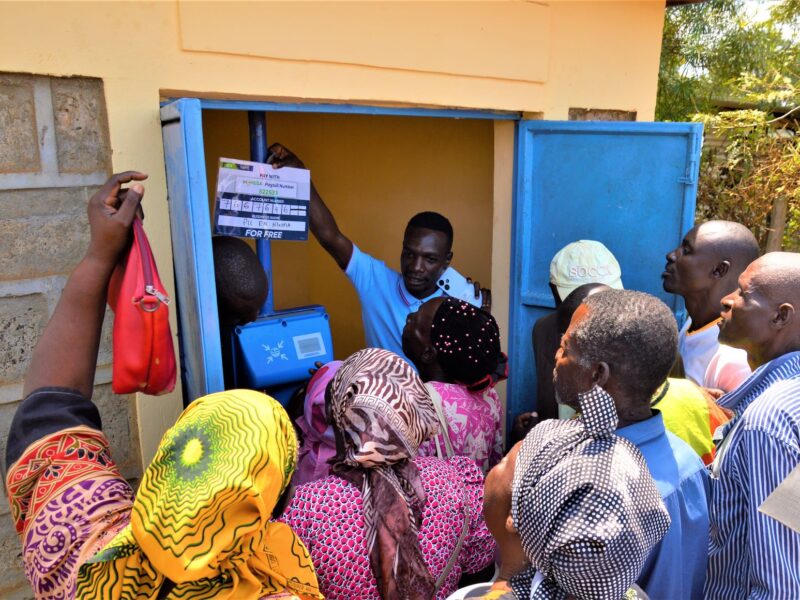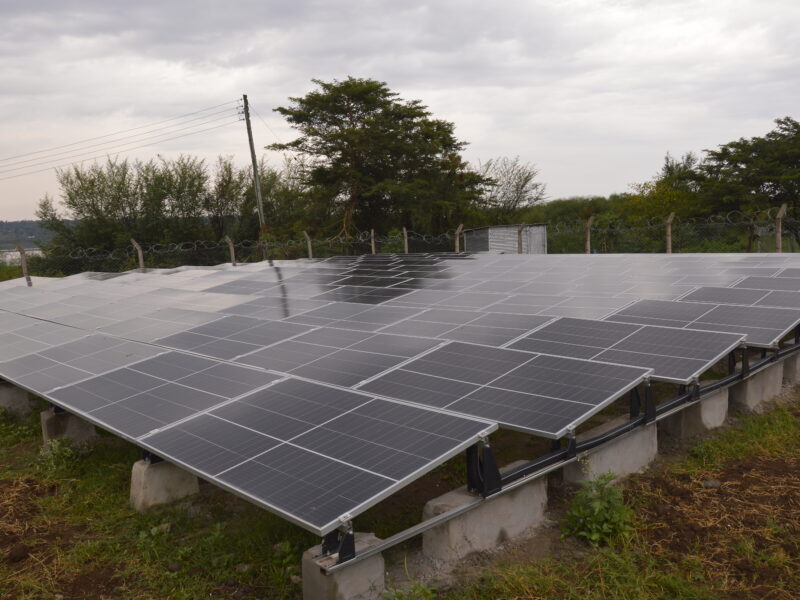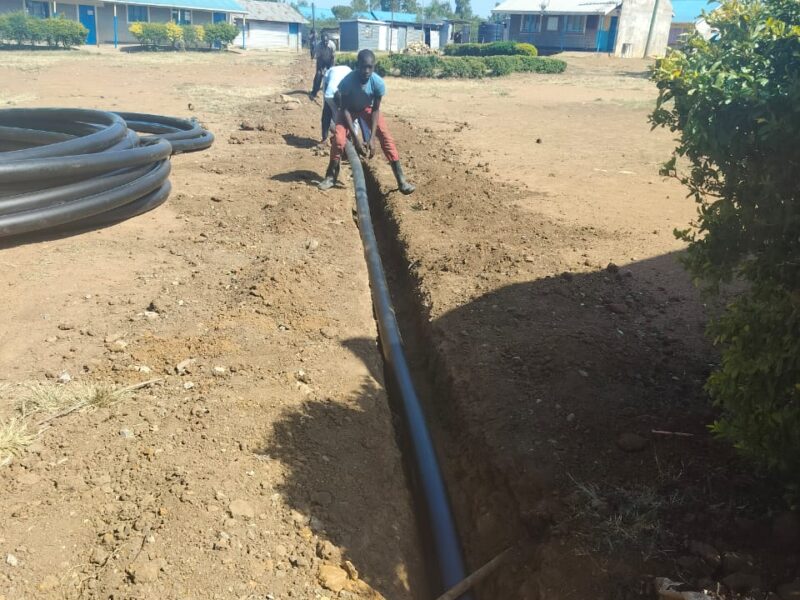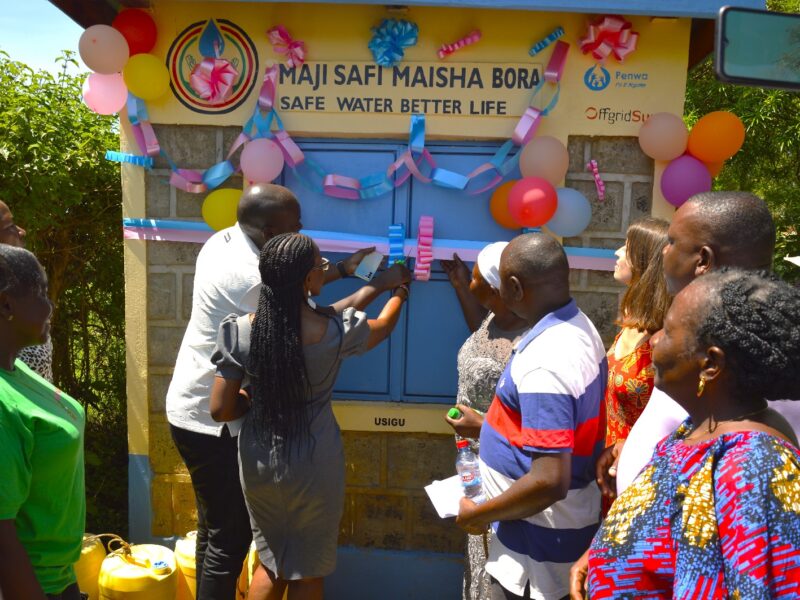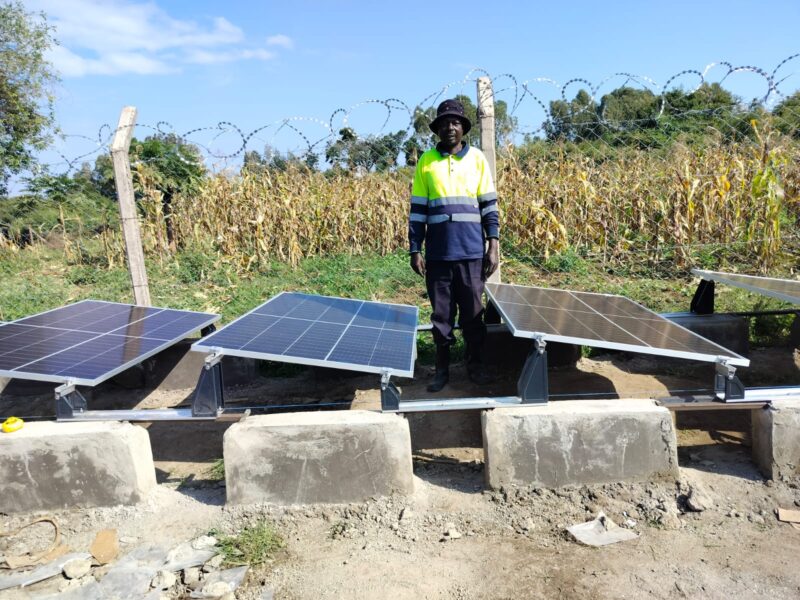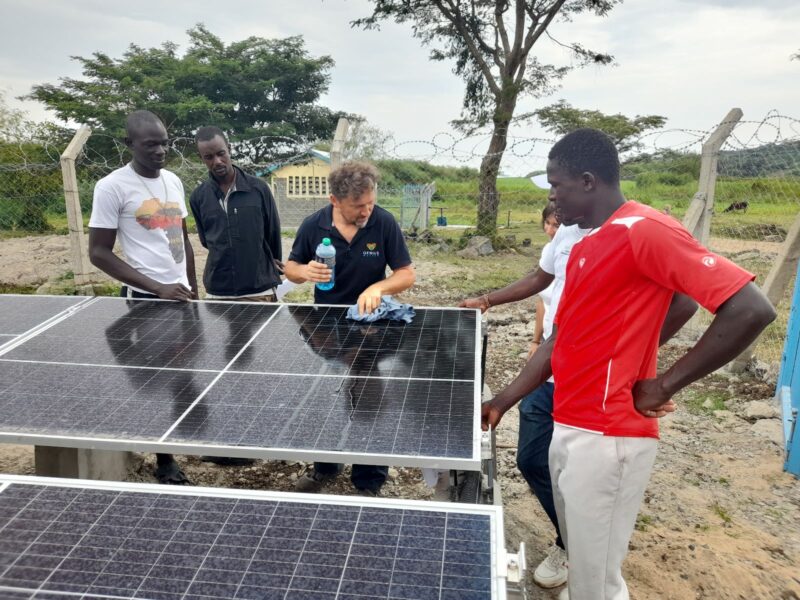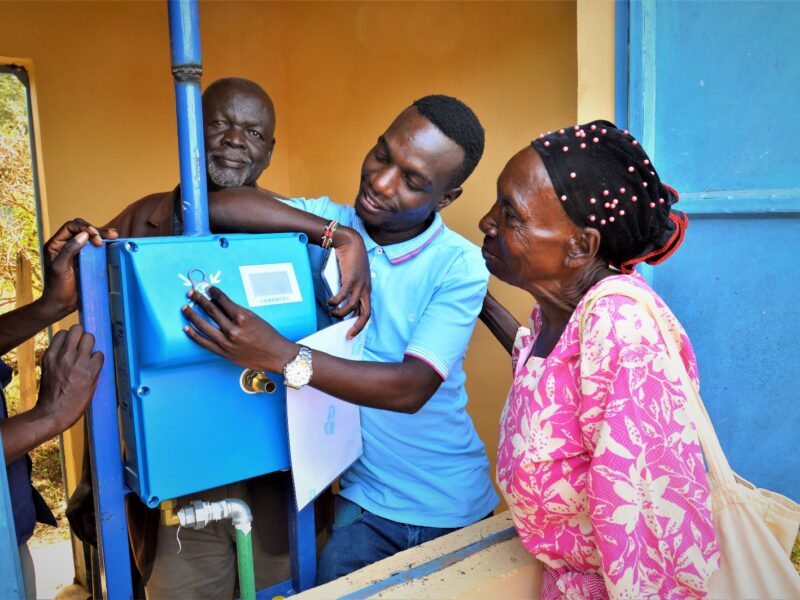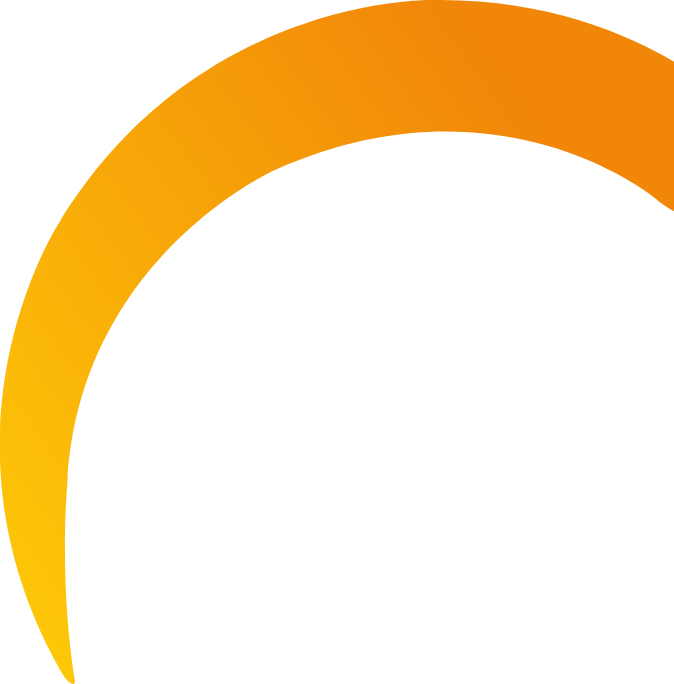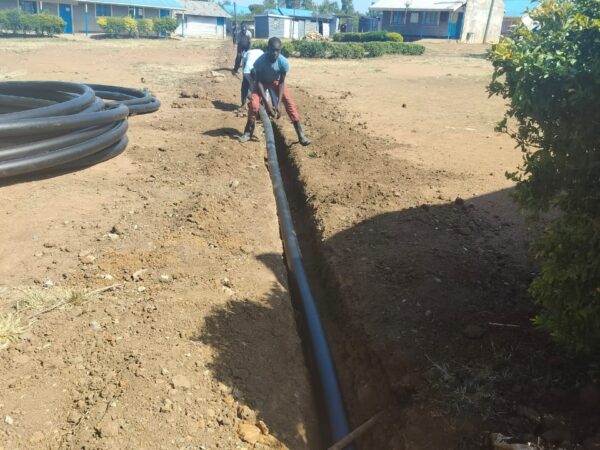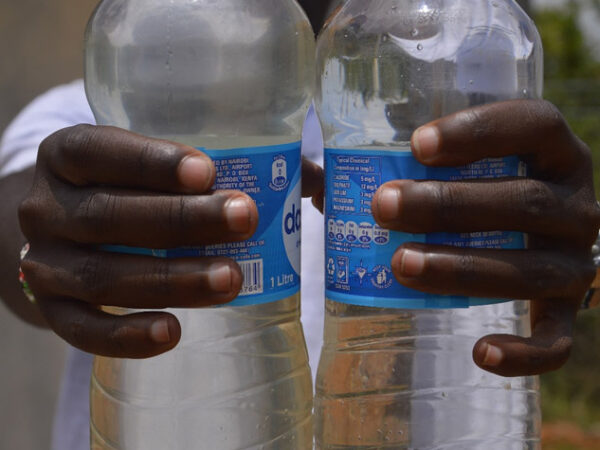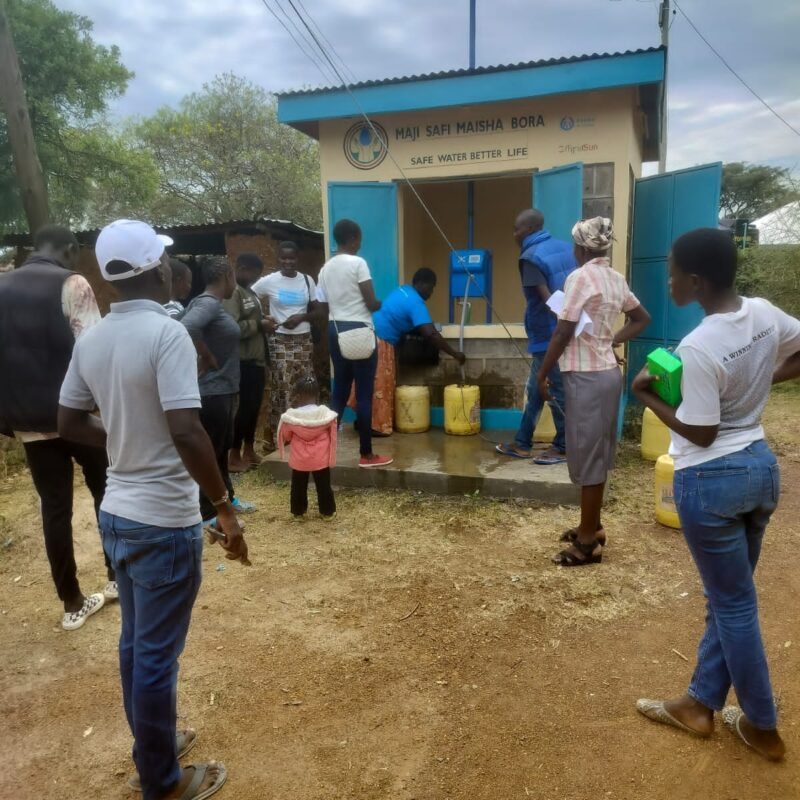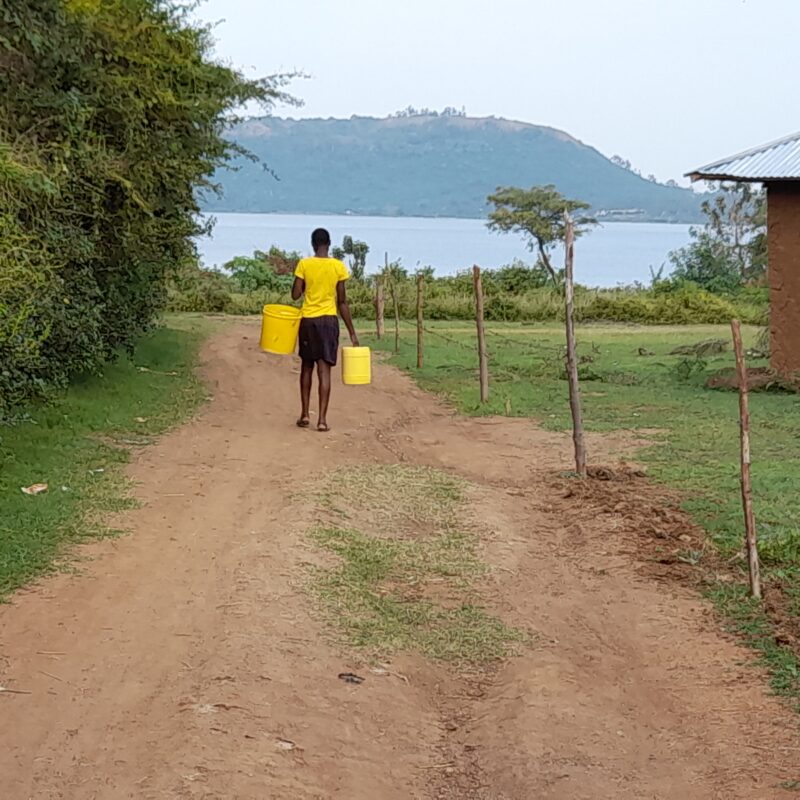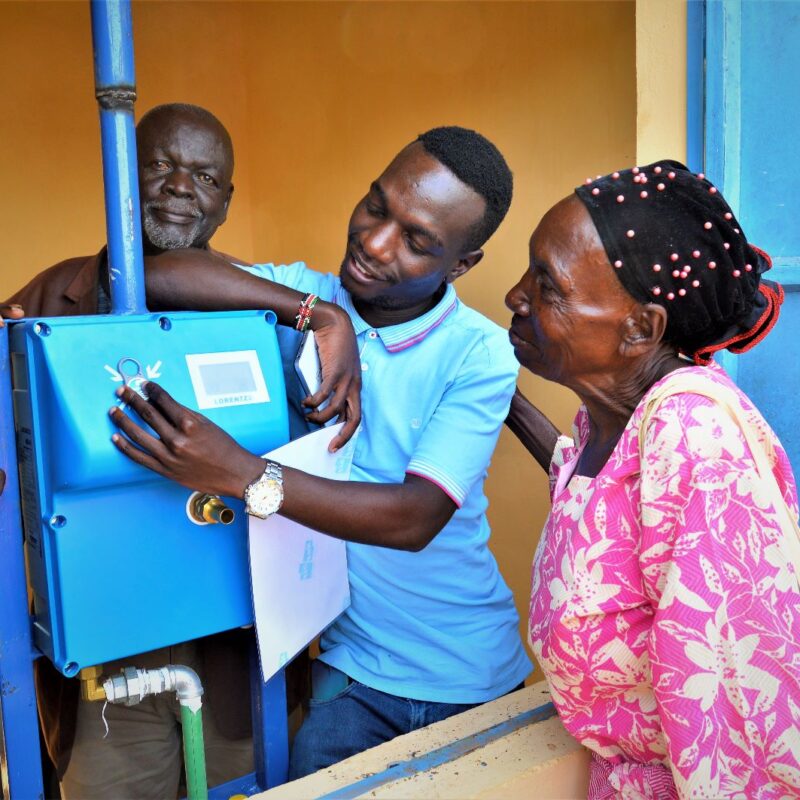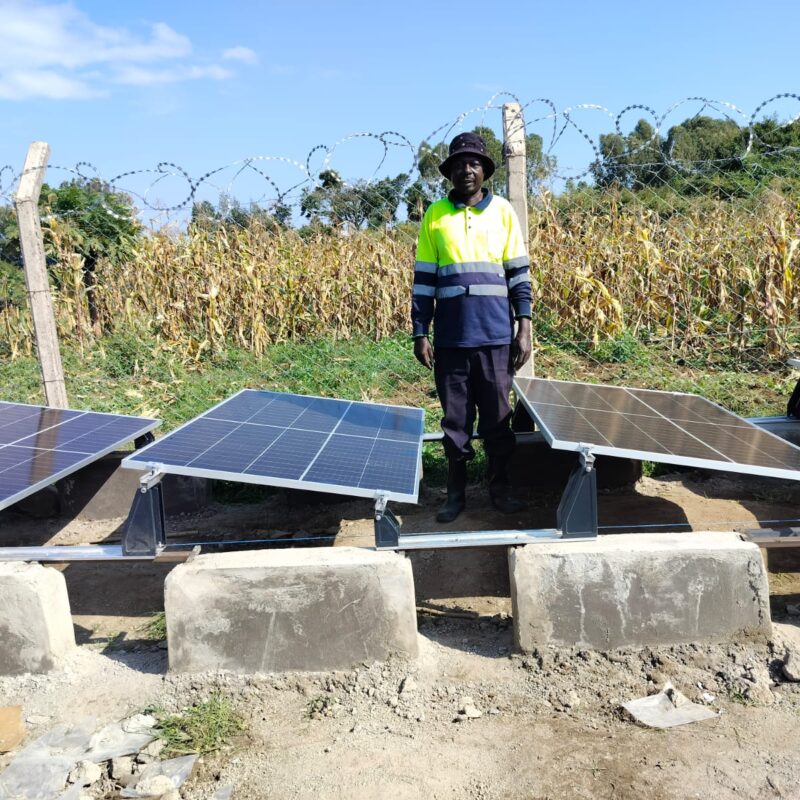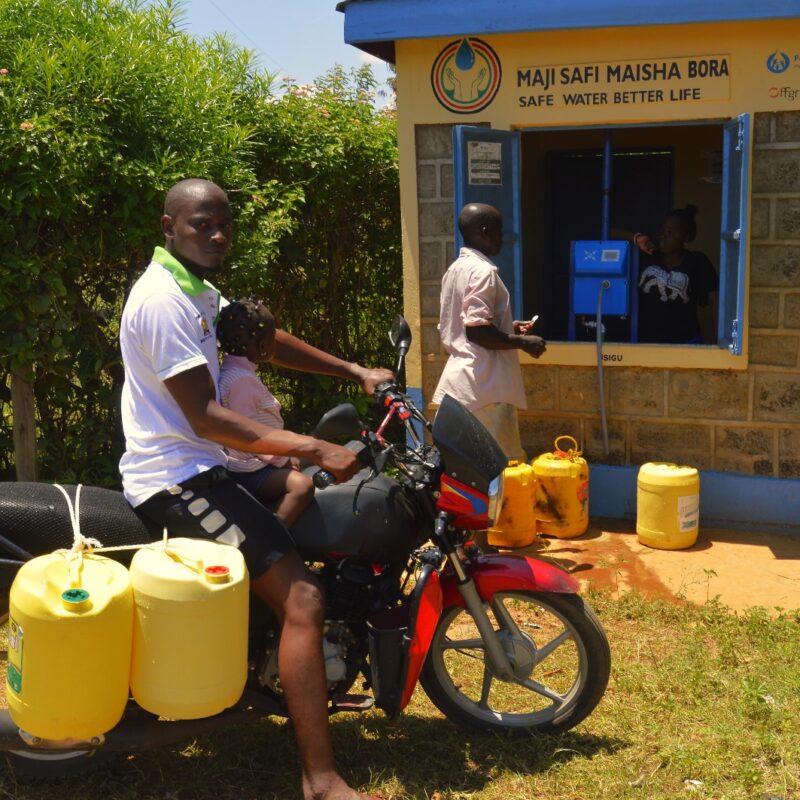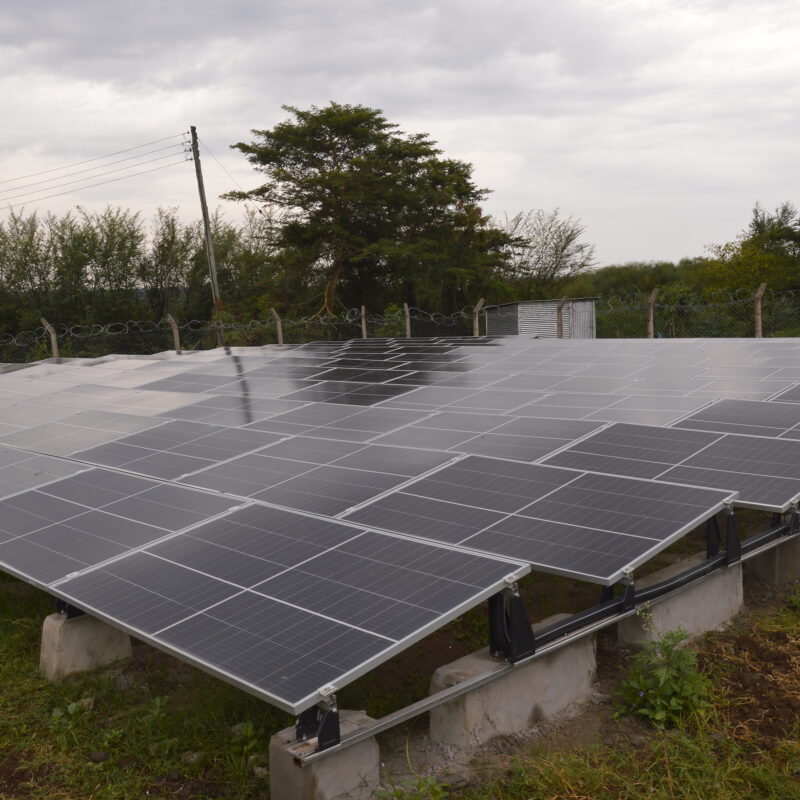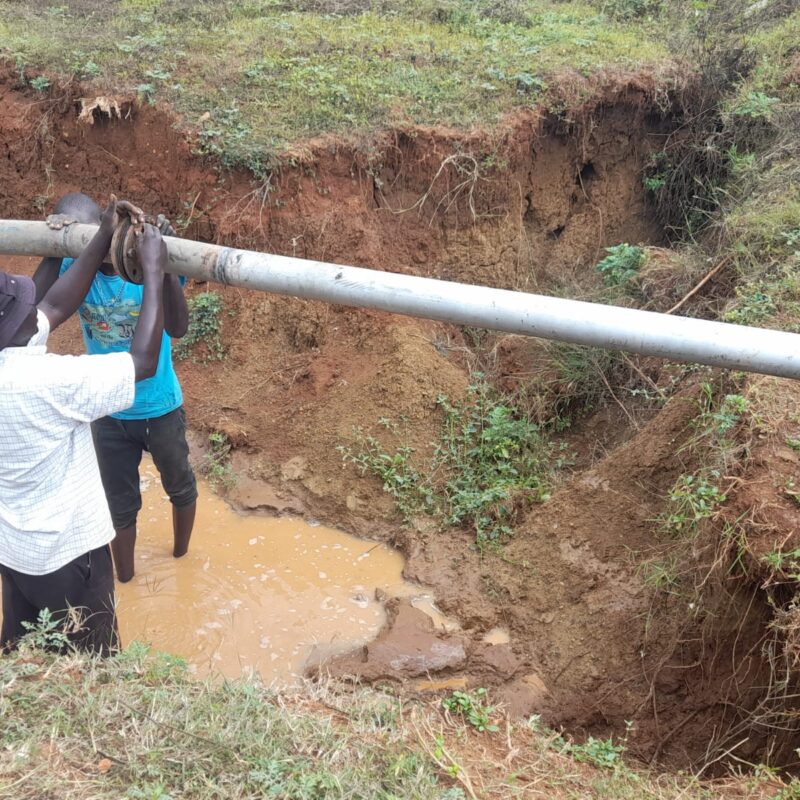Drinking water in Kenya thanks to solar power
In Africa, near the town of Bondo on Lake Victoria, OffgridSun has undertaken to rehabilitate an existing aqueduct to supply about 50,000 with drinking water; this is a self-financed project through the Carbon Credit mechanism.
This is an extensive and complex realization combining various technologies from different technical fields, the entire water network reaches 40 km in extent!
The starting point is the intake work several meters from the shoreline of Lake Victoria to avoid sucking mud toward the pump, from which the dirty water from the lake is sent to the technical room where the pump is placed under-batten so that there are no cavitation problems. This is a 30 kW vertical Grundfos pump connected to a Nastec-branded inverter specifically for solar pumping applications, powered by a ground-mounted 45 kWp photovoltaic system placed a few meters away with FuturaSun FU400M Silk Premium photovoltaic panels.
Rehabilitation and extension of an old aqueduct
Starting with an old aqueduct that had been abandoned because the operator could not pay the electricity bills to run the pump, OffgridSun carried out work that saw us install about 45 kW of photovoltaic modules, supply a new pump, fix all the existing pipelines and water filtration tanks, install 20 smart kiosks for water distribution, and activate dozens of private connections on schools and public buildings. Once the existing network was repaired, we then extended it to neighboring villages hitherto unreached by the aqueduct.
For years the inhabitants of these villages were forced to drink dirty water, boiling it on "cookers" that were nothing more than 3 stones.
This fostered disease, especially among children, who, along with women, were the ones engaged in the daily water supply, walking miles and devoting several hours to this activity.
Drinking water for families, schools and dispensaries
The first phase of the project, completed in October 2023, saw the rehabilitation of the existing water network and the inauguration of 10 kiosks to dispense drinking water to the population, who now pay the same price for drinking water as they previously paid for dirty water. The money collected from the sale of water is used to pay for maintenance and salaries of local technicians and water vendors who are responsible for running the waterworks. The kiosks work with Lorentz-branded “smart taps”: the user pulls up a key loaded with water credits and gets water as long as he or she keeps the key resting on the tap. When the user runs out of credits, he pays the kiosk operator, who then charges the key via special smartphone App.
The second phase of the project, which will see its end in the spring of 2024, will include the extension of the water supply network with new sections and the opening of 10 more kiosks.
Thanks to this project, not only families but also schools and dispensaries will have access to clean water, and it is the local people who work to maintain and properly operate the entire system.
Water at the basis of life
Ensuring health and well-being for everyone and all ages
Lack of clean water is at the root of many illnesses and dysentery that particularly affects children.
- Abatement of childhood diseases
- Increased availability of water even in the dry season
- Improved personal hygiene and health care
Practical help for women
Achieve gender equality and empower all women and girls
Women and children are usually responsible for the water supply. Women therefore lose many hours a day both fetching water and collecting the wood needed to boil it.
- Less time to procure water
- Increased independence and security
Access to water
Ensure the availability and sustainable management of water and sanitation facilities for all
Access to water finally becomes possible for nearly 50,000 people.
- Network of public kiosks
- Private connections on schools and other buildings
- Water quality analysis
Water from the sun
Ensuring access to affordable, reliable, sustainable and modern energy systems for all
The previous waterworks was also in a state of disrepair because the water operator was unable to pay the bills for pump operation. Thanks to the photovoltaic system this will no longer be a problem
- Photovoltaic system that makes the waterworks 100% self-sufficient
- Kiosks equipped with a photovoltaic module for their operation
- Remote monitoring of the plant
A job opportunity
Fostering lasting, inclusive and sustainable economic growth, full and productive employment and decent work for all
Management of the waterworks and each kiosk is entrusted to local staff trained for the purpose.
- More than 30 people actively involved in management
- Shared management with a women’s association
Lower CO2 emissions
Protect, restore and foster sustainable use of the Earth’s ecosystem
Thanks to clean water, highly inefficient emissions from “cookstoves” used to boil water are cut down.
- Lower emissions
- Use of solar energy
Reducing deforestation
Protect, restore and foster sustainable use of the earth’s ecosystem.
Due to the availability of already clean water, there is no need to boil it by burning wood or charcoal.
- Protecting the local flora
- Reducing the risk of desertification
- Increased resilience to climate change


